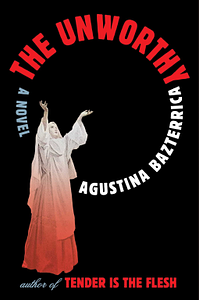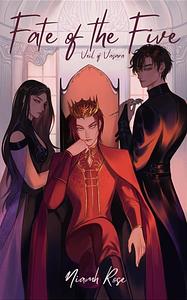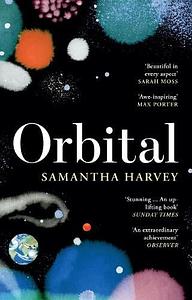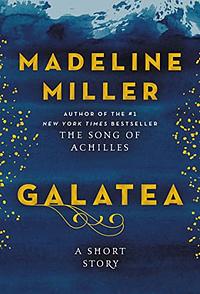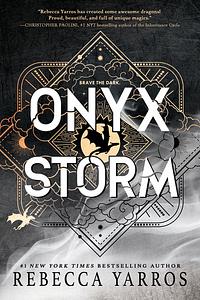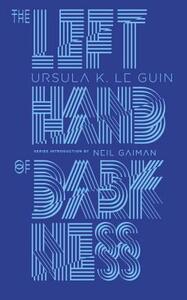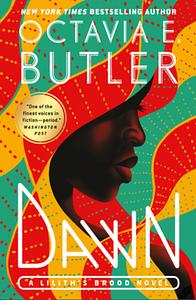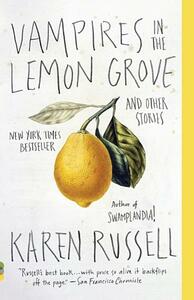Take a photo of a barcode or cover
wyrdwit's Reviews (383)
Weirdly though, I was a little thrown off by “The Unworthy”. The vibes are dark, but not what I was expecting. The writing style doesn’t scream Bazterrica to me, so much so that I had to check whether she used a different translator for this book (she didn’t). It kind of distracted me from the story, and I feel like I might enjoy it more if I approached a second read without expectations for it to be completely on brand with her other writing.
My not-so-favorite part: The backstory for the apocalypse.
There was so much left unexplored. You know there was a climate crisis, but it almost doesn’t feel crucial to the story—like you could use any number of reasons for why these women are isolated and don’t leave their religious cult and convent. Maybe that’s the nature of a sub-200 page novel, but it felt underdeveloped to me.
My favorite part: The characters.
They are brilliant. They are devious. They are cruel (oh, the CRUELTY). But even with violent competition and sabotage dominating their world, companionship and love still somehow manage to survive. You’re awarded these beautiful glimpses into the narrator’s past—precious moments in time spent with her mother before the planet completely fell apart—and the stranger brings with her fragments of hope for the narrator’s future.
Definitely read this. Just be warned you may not get the same flavor of fleshy, body gore as you did with the processing of special meat or the attempt to be perfectly circular.
Graphic: Physical abuse, Violence
Moderate: Confinement, Self harm, Torture
Minor: Rape, Sexual violence, Abortion, Pregnancy
There’s no real flow. The writing is a strange mix of screenplay-like dialogue and more detailed stories / inner monologues. This might have been intentional to help differentiate which storyline was the real world and which was VR, but it was overly-simplistic and disjointed.
The author mentioned in the preface that this is a satire, but satire necessitates that the story be clever, not just crude. The way racism, sexism, abuse, etc. was portrayed didn’t add anything to the story—It felt like a cop out to justify using unnecessary offensive terminology.
Graphic: Body horror, Gun violence, Mental illness, Sexual violence, Violence, Blood, Mass/school shootings
Moderate: Ableism, Child abuse, Drug abuse, Panic attacks/disorders, Racism, Xenophobia, Dementia
Minor: Rape, War
Let me emphasize that if I could give this 6/5⭐️ I would.
Diving into it, I knew this was a multi-POV story about feuding kingdoms and conflict between magic and non-magic people. What I didn’t know was that it also has:
- Unreliable narrators (forgetful or…intentional?)
- A lack of one-dimensional characters (people aren’t inherently “good” or “bad”)
- Twists, turns, and cliffhangers (don’t be too confident in your predictions..)
- Lots of dope fighting scenes (magic and otherwise)
- The slowestttttttt of slow burns (SERIOUSLY TORTUROUS)
First of all, Niamh’s writing style is immaculate. This book is incredibly well-written while also managing to attach deep emotions that many of us vibes readers need to get sucked into a story. There is so much world building, so much thought and intentionality in how characters come together and interact, and so much political intrigue (but not in a boring way, I promise). There are some very dark elements, but the lack of sugar coating is on point for a story fraught with pain and violence.
I didn’t predict the main love interests or how their story would play out, in part because it was so gradual, subtle, and different from how that tends to be portrayed in fiction, where love happens all at once in big, romantic, dramatic ways rather than having to navigate the doubt and questioning when unsure about the place one holds in the other person’s heart.
I’d be remiss if I didn’t mention Niamh’s reimagining of the iconic ballroom staircase scene. This is, without a doubt, the single most beautiful and unique depiction of this in existence. Of the attention one receives when they stand out amongst the crowd, whether it’s from fear, jealousy, or—in some cases—admiration. Of that moment when one first admits to oneself they’ve been yearning for someone despite their best efforts. Of the discomfort and prejudice societal norms inject into the world that may keep one from pursuing who they love. Of that moment when the most gentle, intentional touch sets one’s heart on fire.
Hibernating until book 2 comes out in 2026! 😩
---
I received this ARC from the author in exchange for my honest review.
Graphic: Torture, Violence, Xenophobia, Classism
Moderate: Child death, Cannibalism, War
I don’t necessarily agree with others calling this book uplifting, but even in its existentialism it’s not depressing.
The prose is liquid in the way it flows across the page and slips through your fingers. There’s so much intentionality, and not a single word feels wasted.
The story is short, but Harvey manages to assign so much depth to the characters. You feel the hope and despair, novelty and monotony, oneness and isolation during their 1-day / 16-orbit trip around the Earth. You become disoriented by their descriptions of disturbances in time. You share their sense of helplessness, and you share their grief.
Devoured in a single sitting.
Galatea is a quiet force who demonstrates the sacrifice so many women make in protecting each other from the ugliness of misogyny.
I don’t have anything good to say. This is a total slog. The pacing is painful—it started to pick up around 60%, but it lacked so much substance just in the first 50% you might as well just scrap the book entirely.
There’s nothing enticing about this book. It’s poorly written. There’s very little storyline. Character arcs are basically nonexistent, and the majority of relationships—romantic or otherwise—are toxic. She missed opportunities by saving characters when their deaths could’ve elevated the story. And on top of all that, she recycled the ending.
This honestly felt like a cash grab—a filler episode. Save your time and space in your brain.
Our scene is laid on the planet Gethen (aka Winter) where a human emissary, the Envoy, has been dispatched to try to bring about intergalactic relations. Winter is unique in that (1) it's always cold, and (2) its people shift from androgyny to more distinct male and female genders during a period of fertility known as "kemmer". These differences and the social implications of a society not built around gender are difficult for the Envoy to accept, and his "perversion" of always being male is distasteful to Gethenians. We also see immense distrust from them as they're not a technologically advanced society and don't believe the Envoy's claims of having traveled through space.
The change and growth in the Envoy's character throughout the story was incremental. His clear disdain toward women—and therefore the individuals on Winter who more generally resemble women or are in kemmer and will be the birthing parent—lessens as he gets to know and slightly better understand this difference race of beings. Le Guin sprinkled in quite a bit of humor related to that along his journey.
This book truly highlights that we don't trust what we don't understand and who we don't know, and we don't always say what we mean, whether by omission or diversion.
Moderate: Body shaming, Sexism, Xenophobia
Minor: Gun violence, Incest, Slavery, Violence, War
The important pieces:
This book was about the vibes for me. “Dawn” is incredibly chilling and off-putting. It’s a dark story throughout, but the horror sinks in at a slow pace and is almost sneakily disturbing in its later reveal.
The characters, character development, and world building are lacking but don’t really seem to be the main focus. I don’t really care for any of the human-to-human relationships. I don’t even particularly care for Lilith. However, the fascination the Oankali have with humans—the utility in their flaws, their ability to harbor so much life and death within themselves—and the bond Lilith creates with the ooloi child Nikanj are perverse, complicated, and beautiful.
Oh, the abuse. Chemical, physiological, and psychological manipulation by the Oankali plays out in such a way that you, the reader, start to feel manipulated yourself. You get a taste of the unease and internal conflict one must feel in assimilating to stay alive only to find oneself loathing and loving one’s captors, one’s children… I still couldn’t find it in myself to hate the Oankali at the end, but I sure did hate the humans.
Graphic: Confinement, Xenophobia
Moderate: Death, Emotional abuse, Sexual content, Violence, Grief, Murder, Injury/Injury detail
Minor: Child death, Misogyny, Blood, Car accident, Pregnancy

